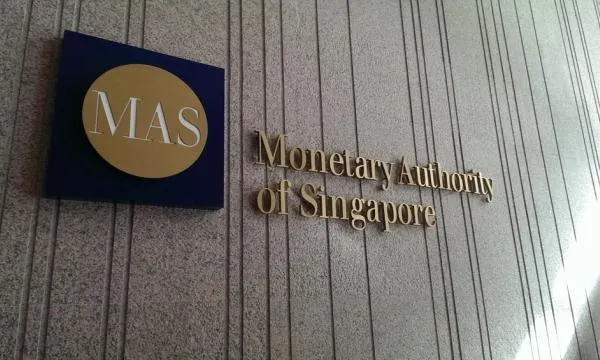
Will MAS allow single family offices to manage VCCs?
Legal firm looks into the impact of this possible change.
The Monetary Authority of Singapore (MAS) is looking into the possibility of widening the scope of permissible fund managers that would allow single family offices (SFOs) to manage variable capital companies (VCCs), according to news reports.
An SFO is an entity that manages assets for or on behalf of only one family and is wholly owned or controlled by members of the same family. SFOs are commonly used by high net worth individuals (HNWIs) to manage their own monies. It allows the internally controlled fund manager to rely on existing licensing exemptions under the Securities and Futures Act and Financial Advisors Act.
In a legal update, legal firm Harry Elias Partnership provides details on the VCC structure and the VCC Grant Scheme (VCCGS) and explains why widening the scope of permissible fund managers may be important for HNWIs looking to set up a fund to manage their own monies.
VCCs and VCC Grant Scheme
According to PwC, VCC is a new legal entity form / structure for all types of investment funds in Singapore. It can be formed as a single standalone fund or as an umbrella fund with two or more sub-funds, each holding different assets.
Currently, a VCC must be managed by a Singapore-licensed fund manager. This means HNWIs who are setting up in Singapore usually have to engage in external licensed fund managers.
There are key benefits of SFOs managing a VCC. First is that the segregation of sub-funds may mitigate risks since the assets of one sub-fund cannot be used to discharge the liabilities of another fund under the same umbrella VCC. Legal firm Harry Elias Partnership said this prevents the commingling of assets between sub-funds. This also extends to insolvency, as each sub-fund of the same umbrella VCC must be separate.
Second, foreign funds structured similarly to the VCC can redomicile to Singapore via a simple registration process as long as it comprises one or more collective investment schemes. This allows foreign funds to preserve their corporate history and identity.
Third is that the VCC’s options of an umbrella fund structure generate cost efficiencies by having sub-funds under the same umbrella VCC share a board of directors and service providers such as fund manager, custodian of assets, and auditor.
Fourth is greater ease of varying share capital and allowing the payment of dividends using capital.
What SFOs may aim in managing their own VCCs is qualifying for the VCC Grant Scheme that opens up SFOs access to tax treaty benefits and grant incentives. Under the scheme, MAS will cofund up to 70% of qualifying expenses for the establishment of a VCC, capped at $150,000 per application.
To apply for the grant scheme, applicants should be Qualifying Fund Managers who have already incorporated or redomiciled a VCC. Qualifying Fund Managers are defined as licensed or registered fund management companies, or certain exempt financial institutions such as banks.
Each applicant may only apply for grants for work done in relation to a maximum of three VCCs.
Applicants should submit their VCC Grant Scheme application within three months from the incorporation or transfer of their VCC. The scheme will be available until 15 January 2023.
Potential tax incentive gains
KPMG's partner and head of real estate & asset management of tax Teo Wee Hwee and asset management tax team director Pearlyn Chew said a VCC is treated for income tax purposes as a single entity, whether for a stand-alone VCC or an umbrella VCC, and similar to that of a private limited company, subject to certain modifications. An example of potential leverage a VCC can have is the availability of Singapore funx tax incentives.
The bottomline, according to Harry Elias Partnership, with the benefits under the scheme, this will significantly lower or defray the cost of setting up a SFO using a VCC for HNWIs.
“Fund management companies and HNW/UHNW individuals and families should seriously consider whether they wish to adopt the SFO structure and the VCC structure for incorporating or re-domiciling their funds in Singapore and should do so as soon as possible in order to take advantage of the VCCGS and relevant tax incentives,” the firm added.



![SBR 5 Lorem Ipsum News 2 [8 May]](https://cmg-qa.s3.ap-southeast-1.amazonaws.com/s3fs-public/styles/exclusive_featured_article/public/2025-05/a_hand_pointing_to_a_futuristic_technology_5b87c9d0e3_3.png.webp?itok=M3Hf-9XR)
![SBR 4 Lorem Ipsum [8 May Top Stories]](https://cmg-qa.s3.ap-southeast-1.amazonaws.com/s3fs-public/styles/exclusive_featured_article/public/2025-05/a_hand_pointing_to_a_futuristic_technology_5b87c9d0e3_2.png.webp?itok=2m5Wl0MX)


![Exclusive three SBR 12 Lorem Ipsum [8 May]](https://cmg-qa.s3.ap-southeast-1.amazonaws.com/s3fs-public/styles/exclusive_featured_article/public/2025-05/a_hand_pointing_to_a_futuristic_technology_5b87c9d0e3_11.png.webp?itok=8kn_UIfA)
![SBR 3 Lorem Ipsum [ Exclusive 2]](https://cmg-qa.s3.ap-southeast-1.amazonaws.com/s3fs-public/styles/exclusive_featured_article/public/2025-05/a_hand_pointing_to_a_futuristic_technology_5b87c9d0e3_1.png.webp?itok=YCyjLegJ)
![SBR 2 Lorem Ipsum [8 May]](https://cmg-qa.s3.ap-southeast-1.amazonaws.com/s3fs-public/styles/exclusive_featured_article/public/2025-05/a_hand_pointing_to_a_futuristic_technology_5b87c9d0e3_0.png.webp?itok=_cKD-29o)

![Video [Event News]](https://cmg-qa.s3.ap-southeast-1.amazonaws.com/s3fs-public/styles/event_news_featured_article/public/2025-05/screenshot-2025-05-08-at-4.58.53-pm_0.png.webp?itok=Kud35sMs)
![Event News SBR 9 Lorem Ipsum [8 may]](https://cmg-qa.s3.ap-southeast-1.amazonaws.com/s3fs-public/styles/event_news_thumbnail/public/2025-05/a_hand_pointing_to_a_futuristic_technology_5b87c9d0e3_8.png.webp?itok=DTh_dbYp)
![Event News SBR 9 Lorem Ipsum [8 May]](https://cmg-qa.s3.ap-southeast-1.amazonaws.com/s3fs-public/styles/event_news_thumbnail/public/2025-05/a_hand_pointing_to_a_futuristic_technology_5b87c9d0e3_7.png.webp?itok=vzDAzb6V)
![Event News SBR 8 Lorem Ipsum [8 May]](https://cmg-qa.s3.ap-southeast-1.amazonaws.com/s3fs-public/styles/event_news_thumbnail/public/2025-05/a_hand_pointing_to_a_futuristic_technology_5b87c9d0e3_6.png.webp?itok=jvHFc4P6)
![Video [Event News]](https://cmg-qa.s3.ap-southeast-1.amazonaws.com/s3fs-public/styles/video_thumbnail/public/2025-05/screenshot-2025-05-08-at-4.58.53-pm_0.png.webp?itok=yZnI0YBb)
![Video 1 SBR [8 May]](https://cmg-qa.s3.ap-southeast-1.amazonaws.com/s3fs-public/styles/video_thumbnail/public/2025-05/screenshot-2025-05-08-at-4.58.53-pm.png.webp?itok=9AAeRz_k)

 Advertise
Advertise

